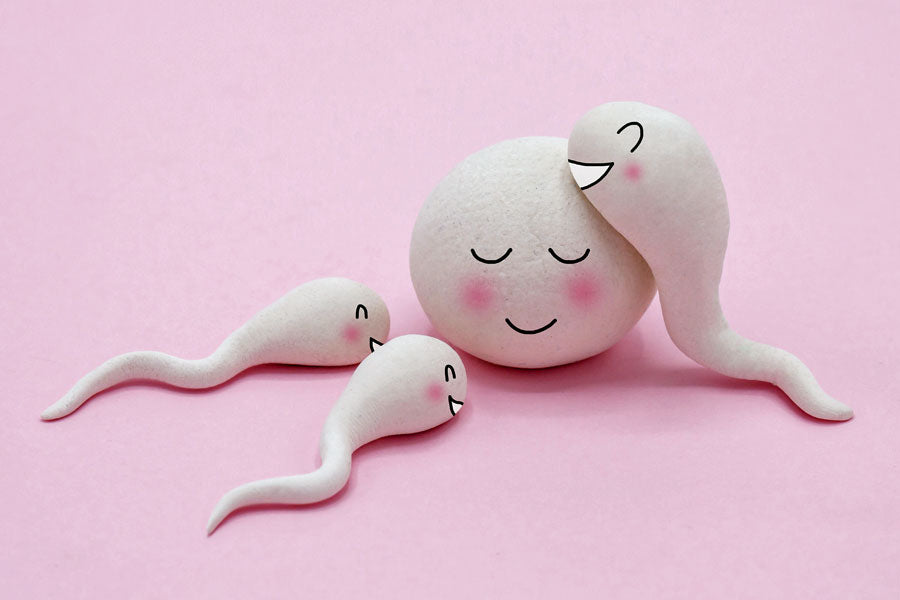Trusted for 25+ Years
Natural Remedies for UTIs

Dr. Lisa Lawless, CEO of Holistic Wisdom
Clinical Psychotherapist: Relationship & Sexual Health Expert

This formidable Urinary Tract Infection (UTI) is the second most common type of infection. It affects millions of women and men, although the majority occurs within women as urinary tract infections afflict one in two women in the United States. With up to 8 million women in the U.S. getting UTIs, it makes sense to be educated about what can cause them as well as natural remedies and when to know if you need to see a doctor.
The good news for those who suffer from this painful infection (and if not treated, potentially life-threatening affliction) is that there are many steps you can take to minimize your risks, prevent future recurrences and treat them naturally.
UTI Symptoms
- A frequent urge to urinate, although the amount of urine passed, may be very small
- Frequent urination during the night
- A burning, painful feeling in the area of the bladder and urethra during urination.
- Pressure and/or pain in the lower abdomen
- Fatigue
- Fever, which can indicate the infection has moved to the kidney
- Cloudy or milky urine or even reddish, which indicates the presence of blood
- Painful, burning feeling in the area of the bladder or urethra during urination
- The urine may have an offensive smell
- Nausea; if the UTI travels to the kidneys, then vomiting is also very common
- Pain in the lower half of the back.
UTI Causes
Typically the way a UTI is formed is through the introduction of bacteria into the urethra. This is commonly caused by E.coli (found in the intestinal tract) and easily spread to the vaginal area from wiping from back to front after urination or sexual activity. This is why making sure to blot or wipe front to back after urination and use good hygiene during and after sex is essential.
A UTI can also be caused by chlamydia and mycoplasma (sexually transmitted organisms), so if either caused your infection, both you and your partner would need to be treated by a physician with the appropriate medication. This is why it may be advisable to consult with a physician about a UTI.
If untreated, a UTI can move up the urinary tract to the bladder (cystitis) and continue to the kidneys (pyelonephritis). This can become a deadly infection known as sepsis when the bacteria moves from the kidneys and into the bloodstream. While most bladder infections are usually easily treated, they should be taken seriously, especially in young children and those over the age of 60, those with a compromised immune system, as well as those who are pregnant.
One of the reasons women tend to suffer from UTIs more than men is that the female urethra is very short, and the opening is closer to the anus, which lends itself to the easy transmission of bacteria. Any contact with harmful bacteria can cause them, including improper cleaning of sex toys, oral sex (fellatio or cunnilingus), and sexual intercourse.
Other UTI Causes & Risk Factors
- Men who have urinary tract disorders such as kidney stones or an enlarged prostate are more prone to infection.
- A catheter placed in the bladder makes a person more susceptible to infection.
- Individuals with diseases that suppress the immune system, such as diabetes, are more prone to urinary tract infections.
- It has been found that women whose partner uses a condom with spermicidal foam have more E. coli in the vagina. This can cause a higher risk for both partners to develop a UTI.
- Frequent sexual intercourse can irritate the urethra, allowing bacteria to travel to the bladder more easily.
- Post Menopause makes UTI's more common due to the vaginal tissues, urethra, and the base of the bladder thinning and becoming more fragile from a loss of estrogen.
Can Female Ejaculation Cause A UTI?
Female ejaculation does not cause UTI's. Urination and female ejaculation help to prevent UTIs. However, sexual activity to stimulate her can cause one to contact the mouth, penis, fingers, or a sex toy that can introduce bacteria into the urethra.
UTI's & Tap Water
When traveling overseas or in areas with inadequate water treatment facilities, you may get a UTI from the water. If your water is treated at a water filtration facility before it gets to you, there would be no reason for the water to be causing it. However, if it is not treated water, you may wish to use bottled water for cleaning the urethral area.
UTI's & Meat Consumption
Many do not know that you can get a UTI from merely eating and/or preparing meat. Salmonella, Campylobacter, and E. coli are examples of bacteria that can cause urinary tract infections. It is bacteria like these found in meat from fecal matter and make its way up into the urine, bladder, and kidneys. It is good to note that beef and pork were significantly less likely to harbor bladder-infecting strains than chicken, which was the biggest offender.
While cooking the meat helps to remove harmful bacteria, the contact made from washing and preparing it causes it to get onto surface areas of your kitchen through what is known as cross-contamination. Proper cleaning is so important when handling meat. Even if you do not eat chicken, you can be exposed through poor handling in restaurants and other situations where the contamination has come into contact with your food. Bacteria from chicken feces (salmonella and campylobacter) often end up all over the kitchen on things such as cutting boards, utensils, fridge handle, cupboards, and the oven handle doorknob.
Those who insist that they are immaculate and use bleach may be disheartened to learn that in a study where people sprayed bleach on all kitchen surfaces and let it sit for 5 minutes, found that there were still campylobacter and salmonella on some of the utensils, dishcloth, the counter around the sink, and the cupboard. While the bleach helped, the point is that unless you keep your kitchen as clean as a biohazard lab, the only way to guarantee avoiding the bacteria is not to bring it in your home.
One good thing to note is that typically chicken bacteria only lasts about ten days in peoples' guts before good bacteria in our bodies can get rid of it. However, because most people tend to eat chicken more than once every ten days, they may continuously reintroduce harmful bacteria into their system. For sushi lovers, you may also find that you're at high risk for harmful bacteria exposure as well.
What makes this even worse is that chickens are often given antibiotics, making their bacteria an antibiotic resistance superbug. This means for a very serious and, in some cases, life-threatening infection.
UTI Treatment
The excellent news is UTIs are straightforward to treat and can be quickly healed if you seek medical care at the first sign of infection. The first step is to make an appointment with your doctor, who will perform a simple urinalysis. If an infection is found, you will be given a round of antibiotics specific to your urine bacterial combination.
The commonly used antibiotics are trimethoprim, cephalosporins, nitrofurantoin, or a fluoroquinolone (e.g., ciprofloxacin or levofloxacin). However, antibiotics disrupt the natural microflora in the body and cause women to be more at risk for gastrointestinal problems, yeast infections, and increases in resistant strains of bacteria. This is why using natural means, such as the suggestions below, maybe a better alternative.
In conjunction with antibiotics, you can utilize natural remedies and methods to overcome the UTI and prevent future infections. If possible, confer with a holistic medical doctor, naturopath, or holistic health professional before beginning a herbal treatment plan. As with all medicines, too much is not always better and can be dangerous and even life-threatening.
Urinating To Prevent A UTI
- Make sure to urinate frequently as using your urine to clear out the bacteria in the tract will help flush out the infection.
- Avoid caffeine as it can lead to being dehydrated.
- Drink plenty of fluids.
Effective UTI Herbal Remedies
Cranberries
Cranberries and blueberries prevent bacteria from attaching to the lining of the urethra and bladder. This is why they are effective at keeping the urinary tract healthy. In particular, cranberries have been used for over a century to treat the urinary tract system; however, do not mistake drinking sugary cranberry juice from your supermarket to take cranberry as this will provide poor results. A less expensive and more effective way to take cranberry is to take it in cranberry extract capsules. Doctors who recommend cranberry typically recommend taking about 400 milligrams of cranberry extract twice a day, and it has been found to be safe to take while pregnant. There are also cranberry / D-mannose supplements that you can get take together. The two of these supplements are best taken as a prevention rather than just as a treatment.
Recent evidence suggests that proanthocyanins in the cranberry fruit prevents bacteria from sticking to the urinary tract walls. This is thought to assist the process of the urine washing away any harmful bacteria. A study published in 2002 showed a significant effect of cranberry juice and tablets on reducing urinary tract infections in 150 women. Currently, the NIH and NCCAH have begun further research on the health benefits of cranberry.
If you are concerned about the amount of sugar in cranberry juice, you can purchase unsweetened cranberry juice in health food stores or purchase capsules or tablets. However, it is recommended that you don't drink cranberry juice if you're taking the blood-thinning medication Warfarin. Possible interactions between cranberry juice and Warfarin can lead to bleeding.
D-Mannose
This is a simple sugar naturally occurring and related to glucose. It acts as a decoy inside your bladder by having the E. coli attach to it rather than the bladder wall, causing the bacteria to flush out when you urinate. Scientific studies have indicated that D-mannose helps to improve the health of bladder cells in general. Doctors who recommend D-mannose typically recommend taking about 500 - 1,000 milligrams of cranberry extract twice a day, and it has been found to be safe to take while pregnant.
Uva Ursi
Uva Ursi is a herb that contains the active component, arbutin, which appears to have antiseptic properties once it is broken down and excreted in the kidneys. This gentle herb also has soothing and strengthening properties. Individuals with liver disease or pregnant or nursing women should not take Uva Ursi. Uva Ursi is typically taken in capsule form. It is also available as a tea.
Do not take these herbs for more than several days. It is a natural antibiotic and can cause the same types of complications that a prescribed antibiotic can, so just because it is natural does not mean it is not powerful or cannot have adverse side effects.
It is typically safe for adults to take for short-term use. However, it is essential to note that it may cause nausea, vomiting, and a greenish-brown discoloration of the urine. Be warned that high doses and/or long-term use can cause eye problems, respiratory issues, liver damage, convulsions, and death.
Doctors who recommend Uva Ursi indicate to take for no longer than ten days using 2-4 grams daily for UTIs.
Pau D'arco
Pau d'arco is a tree used medicinally for its bark and wood and acts as a natural antibiotic used to treat various infections such as UTIs. Pau d'arco may cause severe nausea, vomiting, diarrhea, dizziness, and internal bleeding, so it should be taken with caution and reviewed with your physician before taking it.
Barberry
Another way to prevent bladder infections is through the use of barberry root bark (berberis fenderi) or Oregon grape root bark (mahonia aquifolium / berberis aquifolium) by applying the tincture around the urethra after intercourse. It is an inexpensive topical treatment that has been used as a preventative treatment for women who struggle with recurrent UTIs. To apply such a tincture, use a clean cotton ball and dab at the opening of the urethra (where your urine comes out) after intercourse. You can also apply it 2-3 times per week just as a preventative.
Goldenseal
Goldenseal is a root that possesses natural antimicrobial properties and assists in eliminating harmful bacteria in your system. Goldenseal contains berberine, an alkaloid that is believed to prevent urinary tract infections by stopping harmful bacteria from sticking to the urinary bladder wall. Goldenseal can be taken in a capsule form or drink it as a tea. Juniper Berry has antiseptic properties and is most effective if taken as a whole berry instead of a tea. You can find juniper berry at your local health food store.
Juniper Berries
Juniper berries have long been used to treat oncoming and mild Urinary Tract Infections (UTIs), and they are a great alternative to using antibiotics. The antibacterial and antifungal properties of juniper berries make them a natural remedy that can be quite effective. They are also a diuretic, which means that they help flush out the urethra and bladder, thus cleansing them of harmful bacteria.
The most common ways to take juniper berries to treat a UTI are tea, supplement, tincture, or eating them whole. To enjoy the freshest juniper berries method, add a tablespoon of them to a cup of boiling water and let steep for approximately 20 minutes before drinking it. You can additionally eat the juniper berries as well. Typically to alleviate symptoms of a mild UTI, you can drink the tea twice daily.
Making a juniper berry tincture requires a few weeks to make, so this method is typically used by one who already has the tincture available when developing a UTI symptom.
To make a juniper berry tincture for a UTI:
- Use a glass canning jar with a lid up to a quart size.
- Fill the jar half full of medicinal alcohol, vodka or brandy, and half full with juniper berries. You can also add a touch of bidens (flowering plants in the aster family) such as Beggar's Ticks and or Spanish Needles for added potency.
- Close the jar making sure not to allow any air to get inside to prevent the tincture from rotting.
- Store the jar shaking it once a day for five days in a dark location.
- After the five days are complete, blend the tincture, and put back in the jar for five more weeks.
- Finally, use cheesecloth to strain the tincture putting only the liquid into a bottle and seal.
- Store the tincture in a dark and cool place until you are ready to use it.
- A typical dose of such a tincture for the beginning of a UTI is 6-12 drops under the tongue or in a beverage three times per day.
Juniper berry supplements are available in capsule form, and you can opt to take them alone or in a blend with other herbs such as goldenrod, dandelion, and uva ursi.
Most adults can safely take juniper berries for as long as four weeks. As they can strain the kidneys, it is discouraged to use them longer as that can lead to unwanted health issues. Also, some may find juniper berries to be harsh on the stomach, so taking it in small doses, to begin with, is an excellent idea to determine if it causes any stomach irritation.
Before taking any supplement, it is best to review it with your physician. If you suspect you have a urinary tract infection, it is a good idea to have a urine test to determine its severity as it can become dangerous when it spread to the kidneys.
Juniper berries are not recommended for the following people:
- Pregnant women (can induce labor and cause a miscarriage)
- Children
- Those people with blood sugar issues (can decrease blood sugar)
- Those people with kidney disease
- Those taking lithium
Herbal Teas For UTIs
- Cleavers: soothing relaxant and diuretic.
- Marshmallow Root: has very soothing properties.
- Buchu: a soothing diuretic and antiseptic for the urinary system.
- Corn Silk: a soothing diuretic.
- Horsetail: an astringent and mild diuretic with tissue-healing properties.
- Usnea Lichen: very soothing and antiseptic
UTI Prevention
It's better to prevent infections altogether; here are ways to do that:
- Recent research has shown that people and pets share E. coli. It is recommended that you keep your pet off your bed, steam-clean carpets, and frequently wash your hands.
- Sexual intercourse in a missionary position has been shown to increase friction on the urethra and causing soreness, which increases the risk of UTI. Try other sex positions such as woman-on-top to decrease urethral irritation.
- Cleanse your and your partner's genitalia before and after sex.
- Drink at least eight glasses of water every day to flush your body of bacteria.
- It's important to urinate before and after sex to flush the urethra of both partners.
- When using the bathroom, wipe from front to back to keep E. coli from your bowel movements away from your urinary tract.
- Take showers instead of baths to limit sitting in water that may contain bacteria.
- Wear cotton underwear. This allows more air circulation to occur, keeping your urethra drier. Moisture can be an excellent breeding ground for bacteria.
- Do not suppress the need to urinate, as it can lead to a urinary tract infection.
- Avoid douches, spermicides, and scented sprays, which can all cause irritation and infection.
- Reduce caffeine intake. Caffeine can irritate the urinary tract system.
- Taking probiotics are beneficial as they contain microorganisms that promote a healthy balance of bacteria in your gut. Probiotics are available in supplement form and can be found in fermented foods, such as kefir, kimchi, and kombucha.
- Practice safe sex with your partner(s).
- Washing hands with soap, cleaning and disinfecting sex toys, and other precautions before sex play. See our guide on How To Clean Sex Toys.
- If you are using old lubricant, perhaps it is time for a new one. Bacteria can get mixed in it if it is in contact with your skin. If you are not showering before sex, perhaps you should; men carry bacteria on their penis, which can get introduced into the urethra as well.
- Lubricants made with Sea Kelp and Guava Bark are paraben-free; glycerin-free waterbased lubricants are great ways to help prevent UTIs. Make sure your personal lubricant is waterbased and healthy. See our Lubricant Guide for more helpful information.
When to Seek Medical Attention
- If you are under the age of twelve or over the age of 65
- Are pregnant
- Are male
- Have kidney problems or have diabetes
- Have a fever, chills, nausea, vomiting, pain in or on one side of your ribs
- Have a weak immune system
- Are taking immunosuppressive drugs
Be Empowered
Urinary tract infections are a common problem for many and can be painful and frustrating. Practicing healthy habits and supplementing your diet with UTI-fighting ingredients are all excellent ways to lower your risks.





